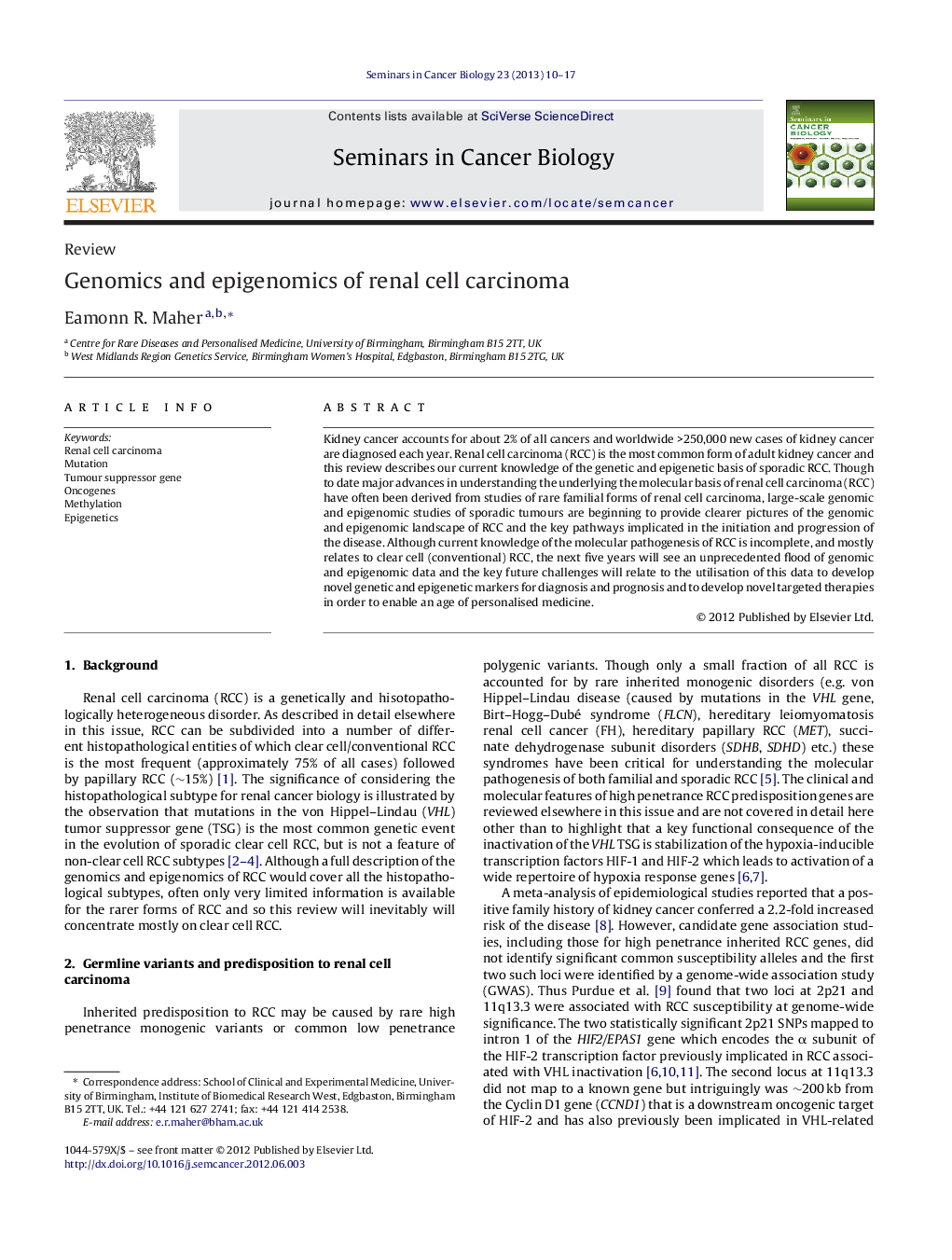| Article ID | Journal | Published Year | Pages | File Type |
|---|---|---|---|---|
| 2023739 | Seminars in Cancer Biology | 2013 | 8 Pages |
Kidney cancer accounts for about 2% of all cancers and worldwide >250,000 new cases of kidney cancer are diagnosed each year. Renal cell carcinoma (RCC) is the most common form of adult kidney cancer and this review describes our current knowledge of the genetic and epigenetic basis of sporadic RCC. Though to date major advances in understanding the underlying the molecular basis of renal cell carcinoma (RCC) have often been derived from studies of rare familial forms of renal cell carcinoma, large-scale genomic and epigenomic studies of sporadic tumours are beginning to provide clearer pictures of the genomic and epigenomic landscape of RCC and the key pathways implicated in the initiation and progression of the disease. Although current knowledge of the molecular pathogenesis of RCC is incomplete, and mostly relates to clear cell (conventional) RCC, the next five years will see an unprecedented flood of genomic and epigenomic data and the key future challenges will relate to the utilisation of this data to develop novel genetic and epigenetic markers for diagnosis and prognosis and to develop novel targeted therapies in order to enable an age of personalised medicine.
